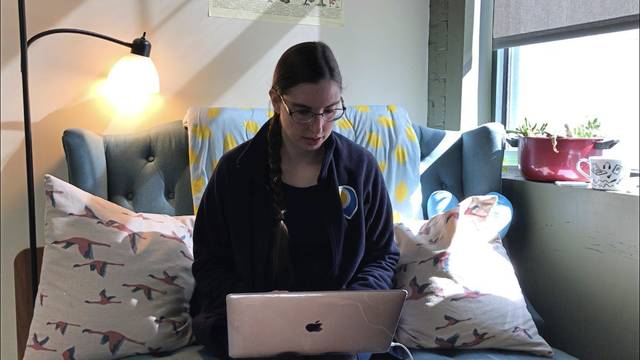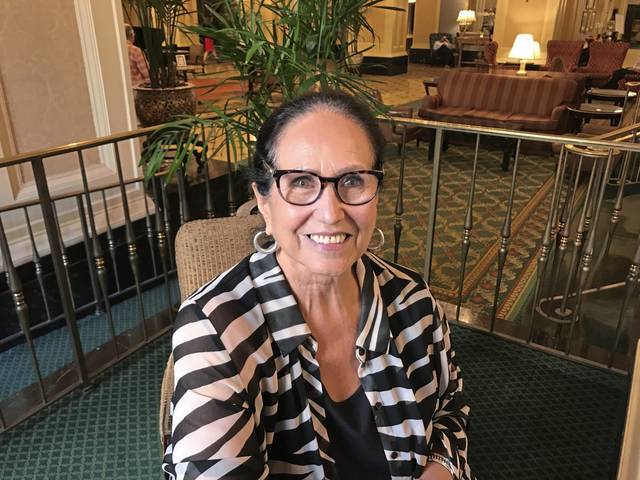Alison Alvarez doesn’t talk about her daughter when she’s pitching her software company to potential investors.
For Alvarez, it’s the unspoken fear that – if she has a family – she’ll not be taken seriously. So, she keeps the conversation about business.
“There should be a wide variety of venture capitalists, but there isn’t,” said Alvarez, 38, CEO of the Pittsburgh-based BlastPoint. “Sometimes, it can be a little harder to tell your story.
“There should be more of us,” she added, “but there aren’t.”
Women entrepreneurs in the Pittsburgh region say they face obstacles to raising capital that their male counterparts don’t. It’s for this reason Yvonne Campos created the Next Act Fund, a women-focused investment fund by and for female entrepreneurs. The organization also holds regular seminars to educate women on investing.
Campos, who founded a Pittsburgh market research company in 1986, anticipates having a second investing round next year.
With an average investment of between $50,000 and $75,000, the fund has raised $3.5 million and, to date, funded more than a dozen businesses.
Roughly seven in 10 of the fund’s investments go to women entrepreneurs, including Alvarez’s BlastPoint in January. BlastPoint uses artificial intelligence to create cost savings by conducting predictive analysis about the customers and places that generate business in utility, franchise, retail and the nonprofit industries.
While the upcoming Next Fund Act II is a result of the buzz on the first round, the women-focused investment fund was an afterthought.
Marion Lewis, a self-described serial entrepreneurial, had started three businesses, but struggled to raise money for her latest venture: BoardBookit, an app that helps board members communicate, plan, create and manage meetings.
Lewis had used her own money to start BoardBookit but needed investors to fund her Pittsburgh-based company beyond the first year.
“I think it’s just harder for women to raise money,” Lewis said. “We just couldn’t find a champion.”
So, Lewis turned to Campos, whom she knew from the local Women Presidents’ Organization, a nonprofit membership group for women in leadership positions in privately held multimillion-dollar companies. And Campos got together some friends to help.
“You have to get the first money in the door to get others to talk to you,” Lewis said. “Next Act Capital served to do that for me.”
The fund was supposed to be a one off, but women started saying to Campos, “No one ever comes to me” and “I want to invest.” So Campos founded the Next Act Fund.
Nationally, women make up nearly half of the workforce, but only own 39% of businesses, according to the U.S. Senate Committee on Small Business & Entrepreneurship. The 11.6 million women-owned businesses in the U.S. employ nearly 9 million people and generate more than $1.6 trillion in revenues.
Bank loans remain the main source of capital for most small businesses.
Women-owned businesses, though, accounted for just 16% of small business loans and only 4.4% of the total loaned, according to the senate committee.
Women entrepreneurs get an even smaller piece of the venture capital dollars. In 2018, female founders got just 2.2% of venture capital dollars nationally, according to Fortune Magazine.
The diversity issue in Pittsburgh isn’t as pronounced as the national data shows, said Terri Glueck, director of Innovation Works, noting 51% of founders in the past 10 years were women or persons of color.
“I do think that our region is doing better than the national average,” Glueck said. “I think we’re ahead of the curve on that one.”
Across the Pittsburgh region, women-founded companies garnered $351 million in venture capital in 2018, according to PitchBook, a Seattle-based financial data company.
As a result of the persistent funding gaps for female founders, women have often relied, as Lewis did when starting BoardBookit, on personal sources of financing – either credit cards or savings – to start their businesses. And they do so with roughly half the capital of their male counterparts.
“If we support women entrepreneurs and they are successful when they exit, they’re going to have a lot of money and then they are most likely to invest in other women-owned business,” said Campos. “It’s a cycle that we’re building.”
With high risk investments, the return is in the exit. An investment exit is when an entrepreneur sells her ownership in the company to another company. Think Facebook buying Instagram for $1 billion or Amazon acquiring the home security company Ring for $1.8 billion. Exits can also happen when a business starts selling stock on the open market through an initial public offering. Ride-sharing giants Lyft and Uber had IPOs this year. So did Pintertest.
“We saw the need, and we also saw the opportunity,” said Georgia Berner, an early investor in the Next Act Fund. “It does kind of boggle my mind that this is 2019 and it’s still necessary to do this.”
After decades in the business world, Lewis has seen the strides women entrepreneurs have made and she sees the much-needed help the Next Act Fund seeks to promote.
“It’s really empowering a whole generation of entrepreneurial women,” Lewis said.











